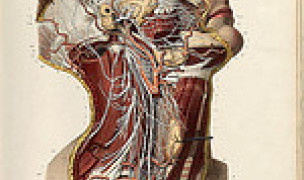 20 Terms
20 TermsHome > Terms > English, UK (UE) > Orthography
Orthography
The orthography of a language is the set of symbols (glyphs and diacritics) used to write a language, as well as the set of rules describing how to write these glyphs, including spelling, pronunciation, and capitalization. The term is derived from Greek ορθά ortha- ("correctly") and γράφειν graphein ("to write").
Orthography is distinct from typography. Orthography includes the writing system of a language. English, for example, has an alphabet of 26 letters for both consonants and vowels, but no glyph for stress. However, each English letter may represent more than one sound, and many English sounds (phoneme) may be written by more than one letter. An example of an orthographic rule describing how letters are used is I before e except after c; another is that the plural is written with the letter s regardless of whether it is pronounced as an (s), as in cats, or as a (z), as in dogs. In addition, combinations of letters called digraphs, such as th, represent single sounds in English orthography. Other languages which use the same alphabet as English may not use the same digraphs.
One of the most complex orthographies is that of Japanese, which uses a combination of several thousand logographic glyphs (Chinese characters Hanzi) called kanji, two syllabaries called katakana and hiragana, and the Latin alphabet, romaji. All words in Japanese can be written in either katakana, hiragana, or rōmaji, and most also have a kanji form. The choice of which type of writing to use depends on a number of factors, including standard conventions, readability, and stylistic choices. An orthography may be described as 'efficient' if it has one glyph per speech sound (phoneme) and vice versa, but few systems are perfect.
An orthography that does not represent all the sounds of a language, such as those of Italian, English or Arabic, is called 'defective'. Both inefficient and defective orthographies may motivate spelling reform.
- Part of Speech: noun
- Synonym(s):
- Blossary:
- Industry/Domain: Language
- Category: Linguistics
- Company:
- Product:
- Acronym-Abbreviation:
Other Languages:
Member comments
Terms in the News
Featured Terms
Wonderland
An abandoned amusement park in Beijing, China, that would be the largest amusement park in the world were it open. In 1998 construction on the park ...
Contributor
Featured blossaries
Browers Terms By Category
- General accounting(956)
- Auditing(714)
- Tax(314)
- Payroll(302)
- Property(1)
Accounting(2287) Terms
- Chocolate(453)
- Hard candy(22)
- Gum(14)
- Gummies(9)
- Lollies(8)
- Caramels(6)
Candy & confectionary(525) Terms
- World history(1480)
- Israeli history(1427)
- American history(1149)
- Medieval(467)
- Nazi Germany(442)
- Egyptian history(242)
History(6037) Terms
- Rice science(2869)
- Genetic engineering(2618)
- General agriculture(2596)
- Agricultural programs & laws(1482)
- Animal feed(538)
- Dairy science(179)
Agriculture(10727) Terms
- Yachting(31)
- Ship parts(4)
- Boat rentals(2)
- General sailing(1)





